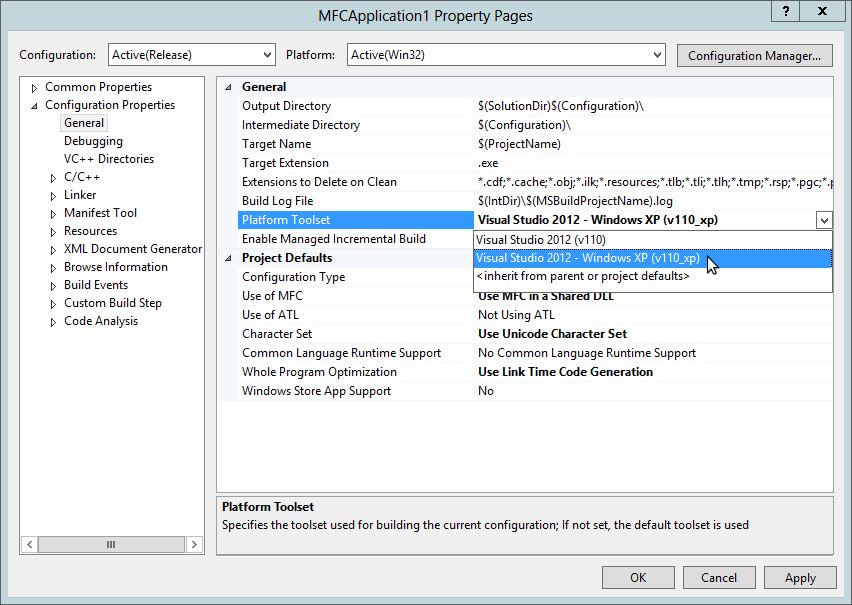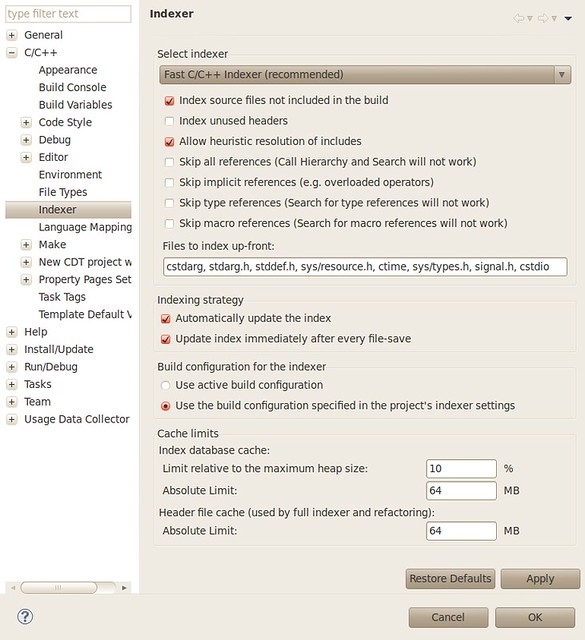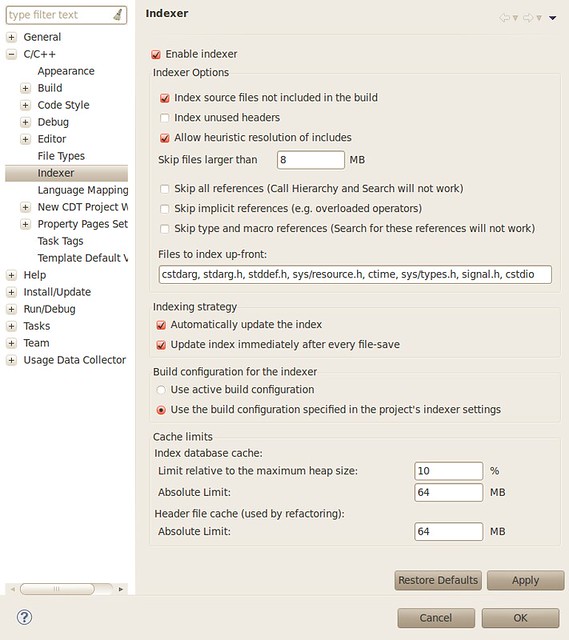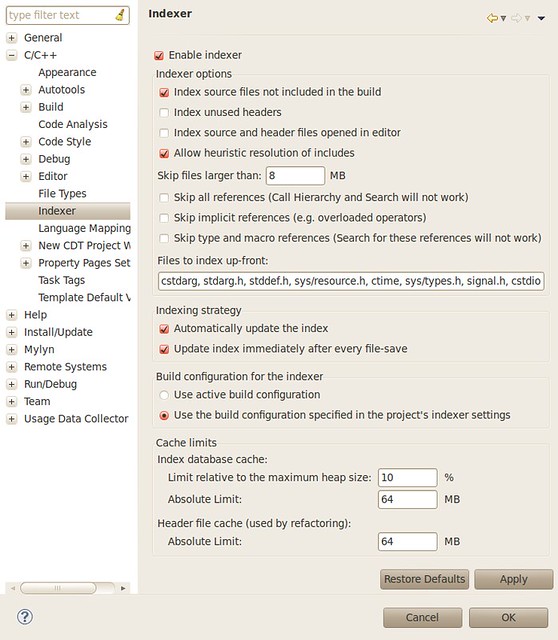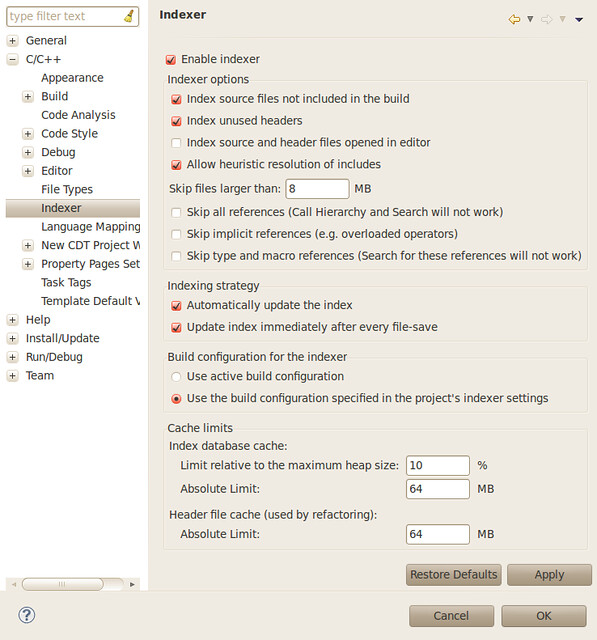A ping utility is used to check the availability of a remote host. I wanted to implement the function in my project. But it is not so easy as I had expected. Since administrator/root privilege is required to create a raw socket under windows/linux, and this is not what I want.
Finally, I chose to utilize system’s ping via CreateProcess()/execve() function. Under windows, ping may used IcmpSendEcho() API to wrap the creation of a raw socket, and this does not require administrator privilege. But it is still not working when logged in as a guest. Under linux, ping is a +s(setuid) utility, which means it is always run with root privilege. Anyway, I still tried to implement ping by using raw socket and sending raw ICMP(Internet Control Message Protocol) messages.
A raw ICMP echo request message has a ICMP header, while a raw ICMP echo reply message has an additional IP header in front of the ICMP header. Say:
|
1 2 |
ICMP echo request = ICMP header + ICMP custom data ICMP echo reply = IP header + ICMP header + ICMP custom data |
There are several ICMP message types defined in RFC 792, but we only care about the echo type. So here’s our definition of a IP header and a ICMP header:
|
1 2 3 4 5 6 7 8 9 10 11 12 13 14 15 16 17 18 19 20 21 22 |
/* RFC 791, 20 bytes */ typedef struct _ip_header_t { u_char vihl; /* version & header length */ u_char tos; /* type of service */ u_short tot_len; /* total length */ u_short id; /* identification */ u_short frag_off; /* fragment offset */ u_char ttl; /* time to live */ u_char protocol; /* protocol */ u_short check; /* header checksum */ u_int saddr; /* source address */ u_int daddr; /* destination address */ } ip_header_t; /* RFC 792, 8 bytes */ typedef struct _icmp_header_t { u_char type; /* type */ u_char code; /* code */ u_short checksum; /* checksum */ /* echo only */ u_short id; /* identifier */ u_short sequence; /* sequence number */ } icmp_header_t; |
Our customized ICMP echo request/reply definition with self-defined data field:
|
1 2 3 4 5 6 7 8 9 10 11 12 13 14 15 16 17 18 19 20 21 22 |
/* data length */ #define DATALEN 64 /* ICMP Echo Request */ typedef struct _icmp_echo_request_t { icmp_header_t icmp_hd; /* self-defined data field */ struct { #ifdef _WIN32 DWORD tick; char pattern[DATALEN-sizeof(icmp_header_t)-sizeof(DWORD)]; #endif #ifdef __linux__ struct timeval tv; char pattern[DATALEN-sizeof(icmp_header_t)-sizeof(struct timeval)]; #endif } data; } icmp_echo_request_t; /* ICMP Echo Reply */ typedef struct _icmp_echo_reply_t { ip_header_t ip_hd; icmp_echo_request_t request; } icmp_echo_reply_t; |
The raw socket is created with:
|
1 |
sock = (int)socket(AF_INET, SOCK_RAW, IPPROTO_ICMP); |
Sending a ICMP echo request:
|
1 2 3 4 5 6 7 8 9 10 11 12 13 14 15 16 17 18 19 20 21 22 23 24 25 26 27 28 29 30 31 |
#define ICMP_ECHO 8 /* send echo request */ int send_echo_request(/*in*/ int sock, /*in*/ struct sockaddr_in *sockaddr, /*in*/ int seq, /*int*/ const char* pattern) { icmp_echo_request_t request; int rc; /* fill in request */ request.icmp_hd.type = ICMP_ECHO; request.icmp_hd.code = 0; request.icmp_hd.checksum = 0; request.icmp_hd.id = getpid(); request.icmp_hd.sequence = seq; #ifdef _WIN32 request.data.tick = GetTickCount(); #endif #ifdef __linux__ gettimeofday(&request.data.tv, NULL); #endif memcpy(request.data.pattern, pattern, sizeof(request.data.pattern)); /* calculate checksum */ request.icmp_hd.checksum = in_cksum((u_short *)&request, sizeof(icmp_echo_request_t)); /* send request */ rc = sendto(sock, (char *)&request, sizeof(icmp_echo_request_t), 0, (struct sockaddr *)sockaddr, sizeof(struct sockaddr_in)); if (rc == -1) { fprintf(stderr, "sendto() error.\n"); return -1; } return 0; } |
We simply use the checksum algorithm found in the original ping program from Mike Muuss.
|
1 2 3 4 5 6 7 8 9 10 11 12 13 14 15 16 17 18 19 20 21 22 23 24 25 26 27 28 29 30 |
u_short in_cksum(u_short *addr, int len) { register int nleft = len; register u_short *w = addr; register u_short answer; register int sum = 0; /* * Our algorithm is simple, using a 32 bit accumulator (sum), * we add sequential 16 bit words to it, and at the end, fold * back all the carry bits from the top 16 bits into the lower * 16 bits. */ while (nleft > 1) { sum += *w++; nleft -= 2; } /* mop up an odd byte, if necessary */ if(nleft == 1) { u_short u = 0; *(u_char *)(&u) = *(u_char *)w; sum += u; } /* * add back carry outs from top 16 bits to low 16 bits */ sum = (sum >> 16) + (sum & 0xffff); /* add hi 16 to low 16 */ sum += (sum >> 16); /* add carry */ answer = ~sum; /* truncate to 16 bits */ return answer; } |
Now, receiving a ICMP echo reply:
|
1 2 3 4 5 6 7 8 9 10 11 12 13 14 15 16 17 18 19 20 21 22 23 24 25 26 27 28 29 30 31 32 33 34 35 36 37 38 39 40 41 42 43 44 45 46 47 48 49 50 51 52 53 |
int recv_echo_reply(/*in*/ int sock, /*in*/ int use_icmp_socket, /*out*/ int *ttl, /*out*/ icmp_echo_request_t *reply) { int rc; if (!use_icmp_socket) { icmp_echo_reply_t rep; rc = recvfrom(sock, (char *)&rep, sizeof(icmp_echo_reply_t), 0, NULL, NULL); if (rc == -1) { fprintf(stderr, "recvfrom() error.\n"); return -1; } if (rep.ip_hd.protocol != IPPROTO_ICMP) { return -1; } *ttl = rep.ip_hd.ttl; memcpy(reply, &rep.request, sizeof(icmp_echo_request_t)); } else { #ifdef __linux__ icmp_echo_request_t rep; struct iovec iov; struct msghdr msg; struct cmsghdr *cmsg; char raw_data[1024]; iov.iov_base = (char *)&rep; iov.iov_len = sizeof(rep); memset(&msg, 0, sizeof(msg)); msg.msg_iov = &iov; msg.msg_iovlen = 1; msg.msg_control = raw_data; msg.msg_controllen = sizeof(raw_data); memset(raw_data, 0, sizeof(raw_data)); rc = recvmsg(sock, &msg, 0); if (rc == -1) { fprintf(stderr, "recvmsg() error.\n"); return -1; } *ttl = 0; memcpy(reply, &rep, sizeof(icmp_echo_request_t)); for (cmsg = CMSG_FIRSTHDR(&msg); cmsg; cmsg = CMSG_NXTHDR(&msg, cmsg)) { if (cmsg->cmsg_level != SOL_IP) { continue; } if (cmsg->cmsg_type == IP_TTL) { if (cmsg->cmsg_len < sizeof(int)) { continue; } *ttl = *(int *)CMSG_DATA(cmsg); } } #endif } return 0; } |
You may have noticed the if/else clause in the receive function. The use_icmp_socket flag is used to tell which socket type is used when sending a ICMP message. In linux kernel 3.0, a new socket type is introduced to reduce the possibility to use a raw socket that only send ICMP echo messages. Thus, the classic ping utility can be no longer a +s(setuid) one. A ICMP socket can be created with:
|
1 2 3 |
/* icmp socket available in kernel 3.0 */ /* # echo 1000 1000 | sudo tee -a /proc/sys/net/ipv4/ping_group_range */ sock = (int)socket(AF_INET, SOCK_DGRAM, IPPROTO_ICMP); |
Note the difference in the second parameter. A kernel parameter(/proc/sys/net/ipv4/ping_group_range) in comment above should be set to indicate which UID range is allowed to use a ICMP socket.
When using a raw socket, the TTL value is in the IP header. While, the TTL value is in the socket ancillary data when using a ICMP socket, the reply data does not contain IP header any more. And we must set a socket option explicitly to retrieve the TTL value:
|
1 2 3 4 |
int hold = 1; if (setsockopt(sock, SOL_IP, IP_RECVTTL, (char *)&hold, sizeof(hold))) { fprintf(stderr, "setsockopt(IP_RECVTTL) error.\n"); } |
Let’s put them all together:
|
1 2 3 4 5 6 7 8 9 10 11 12 13 14 15 16 17 18 19 20 21 22 23 24 25 26 27 28 29 30 31 32 33 34 35 36 37 38 39 40 41 42 43 44 45 46 47 48 49 50 51 52 53 54 55 56 57 58 59 60 61 62 63 64 65 66 67 68 69 70 71 72 73 74 75 76 77 78 79 80 81 82 83 84 85 86 87 88 89 90 91 92 93 94 95 96 97 98 99 100 101 102 103 104 105 106 107 108 109 110 111 112 113 114 115 116 117 118 119 120 121 122 123 124 125 126 127 |
#define ICMP_ECHOREPLY 0 #define ICMP_UNREACH 3 #ifdef _WIN32 #define my_sleep(milsec) Sleep(milsec) #define sock_close(s) closesocket(s) #endif #ifdef __linux__ #define my_sleep(milsec) usleep(milsec*1000) #define sock_close(s) close(s) #endif int ping(const char *host, int loop) { int sock, use_icmp_socket, i, ttl, maxdiff, mindiff, alldiff, allreceive; char *ip, raw[DATALEN]; struct sockaddr_in dst_addr, *sockaddr; struct timeval wait_timeout; struct addrinfo *result; fd_set readfds; #ifdef _WIN32 WSADATA WSAData; if (WSAStartup(MAKEWORD(2, 2), &WSAData) != 0) { return -1; } #endif /* find ip */ if (getaddrinfo(host, NULL, NULL, &result) != 0) { fprintf(stderr, "getaddrinfo() error.\n"); return -1; } /* use the first result */ sockaddr = (struct sockaddr_in *)result->ai_addr; ip = strdup(inet_ntoa(sockaddr->sin_addr)); freeaddrinfo(result); /* address */ dst_addr.sin_family = AF_INET; dst_addr.sin_port = 0; dst_addr.sin_addr.s_addr = inet_addr(ip); for (i = 0; i < DATALEN; i++) { raw[i] = ' ' + (char)i; } /* socket */ use_icmp_socket = 0; sock = -1; #ifdef __linux__ /* icmp socket available in kernel 3.0 */ /* # echo 1000 1000 | sudo tee -a /proc/sys/net/ipv4/ping_group_range */ sock = (int)socket(AF_INET, SOCK_DGRAM, IPPROTO_ICMP); if (sock != -1) { int hold = 1; use_icmp_socket = 1; if (setsockopt(sock, SOL_IP, IP_RECVTTL, (char *)&hold, sizeof(hold))) { fprintf(stderr, "setsockopt(IP_RECVTTL) error.\n"); } } #endif if (sock == -1) { sock = (int)socket(AF_INET, SOCK_RAW, IPPROTO_ICMP); if (sock == -1) { fprintf(stderr, "socket() error.\n"); free(ip); return -1; } } /* loop */ maxdiff = mindiff = alldiff = allreceive = 0; printf("PING %s (%s) %d(%d) bytes of data.\n", host, ip, DATALEN-8, sizeof(icmp_echo_reply_t)); for (i = 0; i < loop; i++) { send_echo_request(sock, &dst_addr, i, raw); /* select */ FD_ZERO(&readfds); FD_SET(sock, &readfds); wait_timeout.tv_sec = 3; wait_timeout.tv_usec = 0; if (select(sock+1, &readfds, NULL, NULL, &wait_timeout) <= 0) { printf("Request timed out.\n"); } else { int diff; icmp_echo_request_t reply; #ifdef _WIN32 if (recv_echo_reply(sock, use_icmp_socket, &ttl, &reply) == -1) { continue; } diff = GetTickCount() - reply.data.tick; #endif #ifdef __linux__ struct timeval cur_tv; if (recv_echo_reply(sock, use_icmp_socket, &ttl, &reply) == -1) { continue; } gettimeofday(&cur_tv, NULL); diff = (cur_tv.tv_sec-reply.data.tv.tv_sec)*1000*1000 + (cur_tv.tv_usec-reply.data.tv.tv_usec); diff /= 1000; #endif if (reply.icmp_hd.type == ICMP_UNREACH) { /* ??? */ } else if (reply.icmp_hd.type == ICMP_ECHOREPLY) { allreceive++; alldiff += diff; maxdiff = (diff > maxdiff) ? diff : maxdiff; if (mindiff == 0) { mindiff = diff; } else { mindiff = (diff < mindiff) ? diff : mindiff; } printf("%d bytes from %s (%s): icmp_req=%d ttl=%d time=%d ms\n", DATALEN, host, ip, reply.icmp_hd.sequence, ttl, diff); } } my_sleep(1000); } /* statistic */ printf("\n--- %s ping statistics ---\n", host); printf("%d packets transmitted, %d received, %d%% packet loss, time %d ms\n", loop, allreceive, (loop-allreceive)*100/loop, alldiff); if (allreceive != 0) { printf("rtt min/avg/max = %d/%d/%d ms\n", mindiff, alldiff/allreceive, maxdiff); } printf("\n"); free(ip); sock_close(sock); #ifdef WIN32 WSACleanup(); #endif return 0; } |
All code compiles and works under Ubuntu 12.04(gcc4.6), Windows XP(VS2005) and Windows 7(VS2010) with administrator/root privilege. After enabling the ICMP socket parameter, root privilege is not required under linux. The output may look like:
|
1 2 3 4 5 6 7 8 9 |
gonwan@gonwan-precise:~/eclipse/workspace/ping$ ./ping www.google.com PING www.google.com (74.125.31.99) 56(84) bytes of data. Request timed out. 64 bytes from www.google.com (74.125.31.99): icmp_req=1 ttl=46 time=62 ms 64 bytes from www.google.com (74.125.31.99): icmp_req=2 ttl=46 time=66 ms --- www.google.com ping statistics --- 3 packets transmitted, 2 received, 33% packet loss, time 128 ms rtt min/avg/max = 62/64/66 ms |
Reference:
– RFC 791: http://tools.ietf.org/html/rfc791
– RFC 792: http://tools.ietf.org/html/rfc792
– Implement ping in C: http://www.ibm.com/developerworks/cn/linux/network/ping/
– Raw Socket and ICMP: http://courses.cs.vt.edu/cs4254/fall04/slides/raw_6.pdf
– Linux Kernel 3.0: http://kernelnewbies.org/Linux_3.0
– IPv4: Add ICMP Socket Kind: http://lwn.net/Articles/420800/
– Patch for Userspace ping: ftp://ftp.intelib.org/pub/segoon/iputils-ss020927-pingsock.diff
– Wine Implementation: http://fossies.org/dox/wine-1.4.1/icmp_8c_source.html
